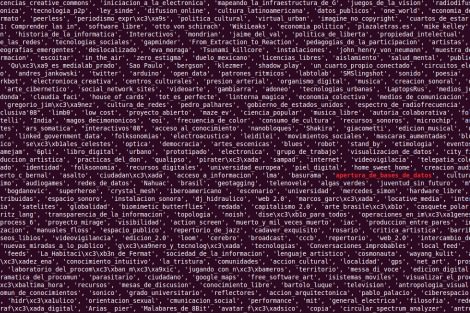Keywords: Internet Access
-

RELIGION
- Frank Brennan
- 26 June 2017
6 Comments
These cardinals have a few strong concerns. They think the pope should be setting down clear universal rules that apply to everyone in every situation. Having spent a life time as a pastor in Buenos Aires, Francis knows life is much more complex and messy than that. These four cardinals pine for the papacy of John Paul II. John Paul was a great leader and a great pope for his time. Francis is also a great leader and a great pope for his time, for our time. John Paul and Francis are very different. But then again, the times are very different.
READ MORE
-

AUSTRALIA
When I wrote recently that the future of work lies in understanding work as 'pleasure in the exercise of our energies', one reader noted 'these discussions have little meaning when you are poor or dispossessed'. Spending your life doing what you are competent at pales into insignificance when set against the prospect of a life engrossed in one's passions. That is a decision that every worker has it within their power to make. And as it turns out, it should be a concern of the unemployed, too.
READ MORE 
-

AUSTRALIA
Next year marks four decades since promulgation of the seminal Declaration of Alma Ata, which declared health to be a fundamental human right and laid the foundations for what are now widely championed as the social determinants of health. Without action on the social determinants, health policy can be a little like that joke about the cyclopean orthopod who, when confronted with a patient suffering fatal internal bleeding, is interested only in fixing their broken leg. So it is with last week's Budget.
READ MORE 
-

INTERNATIONAL
- Justin Glyn
- 15 November 2016
6 Comments
If a failure of empathy marks our understanding of internal politics, its effects are magnified, with even worse results, in the international arena. A classic example is Russia. Since the fall of the Soviet Union, the west has failed to take Russian interests seriously. I endorse neither the present Russian government nor its point of view. However, knowing that the other side has a point of view and what it is is vital in avoiding miscalculations. You don't get a second chance with nuclear weapons.
READ MORE 
-

AUSTRALIA
- Kate Galloway
- 06 October 2016
3 Comments
The Productivity Commission was charged in March to inquire into 'data availability and use'. The inquiry holds important implications for Australians because our personal information is collected and stored by business and government in nearly all our daily interactions. The inquiry's terms of reference however make a number of assumptions, making it look very much as though it will find that the benefits of making data available outweigh the costs. And those costs are likely to be our privacy.
READ MORE 
-

MEDIA
- Catherine Marshall
- 29 July 2016
2 Comments
Though the internet has stretched and expanded the number of people and places we have access to, it has also constrained the range of ideas and opinions to which we're exposed. Research has found that Facebook users tend to read and share information that reinforces their own beliefs. This phenomenon has been particularly noticeable in the past month, with the emotion whipped up by the Brexit campaign, the election, and a spate of shocking, apparently Isis-related killings.
READ MORE 
-

AUSTRALIA
- Leanne O'Donnell
- 12 January 2016
Back in March Malcolm Turnbull told ABC radio: 'The only thing the data retention law is requiring is that types of metadata which are currently retained will be retained ... for at least two years.' In fact the laws, which come into effect next week, include an obligation on service providers to 'create' data that falls within the data set to be retained, if they don't already collect it. This isn't nitpicking. The more data that is created, the more the scheme will cost, and the greater the risk of privacy breach.
READ MORE 
-

AUSTRALIA
- Andrew Zammit
- 11 January 2016
2 Comments
In September Sydney's Daily Telegraph ran the headline 'Schoolyard Terror Blitz', reporting that 'schoolteachers will be given access to radicalisation information awareness kits explaining how to identify students at risk and what they should do to intervene as concerns grow about the rise of teen terrorists'. As the government prepares to address the involvement of schoolchildren in violent extremism, a controversial program in the UK shows a dangerous path that Australia must avoid.
READ MORE 
-

AUSTRALIA
- Leanne O'Donnell
- 24 November 2015
7 Comments
In October last year, in my former role as regulatory manager of iiNet, I responded to a confidential industry consultation paper on the proposed data retention scheme. The Attorney-General's Department provided no response to that 22 page paper beyond an acknowledgment of receipt. It's frustrating to feel like a government is simply going through the motions of 'consultation'. This isn't an isolated case. There's too often a lack of meaningful consultation before bills are introduced into Parliament.
READ MORE 
-

ECONOMICS
- David James
- 19 October 2015
7 Comments
For those who believe, as G. K. Chesterton quipped, that the popular press is 'a conspiracy of a very few millionaires', the decline of mainstream media may not seem such a great loss. But the thinning of journalistic ranks is not good for democracy. In the world of business, old habits usually do not die at all — it is rather the businesses themselves that experience terminal decline. What journalism that does emerge from the ashes of the existing mainstream media businesses will be very different.
READ MORE 
-

AUSTRALIA
- Andrew Zammit
- 14 October 2015
8 Comments
In September Sydney's Daily Telegraph ran the headline 'Schoolyard Terror Blitz', reporting that 'schoolteachers will be given access to radicalisation information awareness kits explaining how to identify students at risk and what they should do to intervene as concerns grow about the rise of teen terrorists'. As the government prepares to address the involvement of schoolchildren in violent extremism, a controversial program in the UK shows a dangerous path that Australia must avoid.
READ MORE 
-

AUSTRALIA
- Leanne O'Donnell
- 09 October 2015
5 Comments
Back in March Malcolm Turnbull told ABC radio: 'The only thing the data retention law is requiring is that types of metadata which are currently retained will be retained ... for at least two years.' In fact the laws, which come into effect next week, include an obligation on service providers to 'create' data that falls within the data set to be retained, if they don't already collect it. This isn't nitpicking. The more data that is created, the more the scheme will cost, and the greater the risk of privacy breach.
READ MORE 